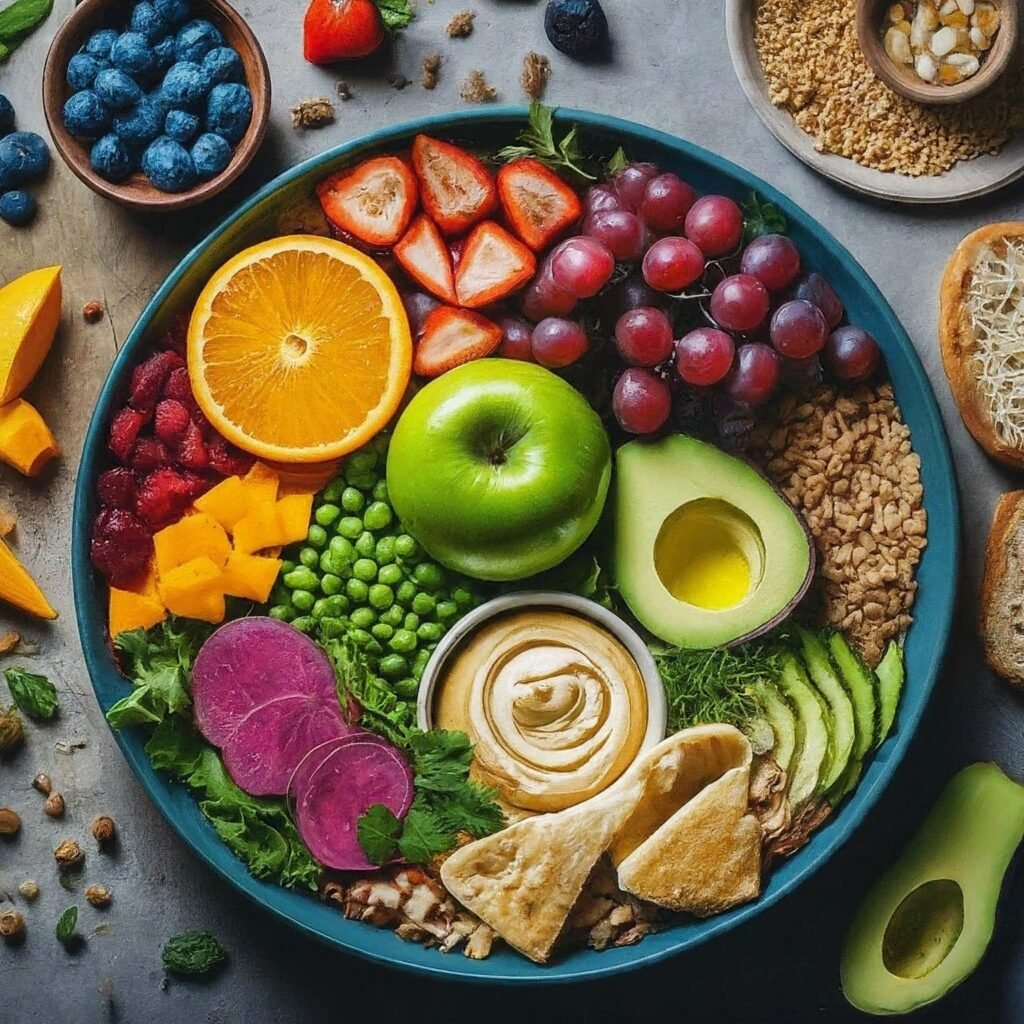The Ultimate Guide to Digestive Health Healing Rituals

Are you looking to improve your digestive health and overall well-being? Look no further! In this comprehensive guide, we will explore various healing rituals and tips that can help you achieve optimal digestive health. From dietary changes to lifestyle practices, we will cover everything you need to know to support a healthy gut. Whether you suffer from digestive issues or simply want to enhance your wellness, this guide is the ultimate resource for improving your digestive health.
Table of Contents
Table of Contents
Understanding Digestive Health
The digestive system plays a crucial role in the overall well-being of an individual. It is responsible for breaking down food, absorbing nutrients, and eliminating waste from the body. Understanding how the digestive system works can help in maintaining optimal health.
The Importance of Gut Health
Gut health is essential for overall health and well-being. A healthy gut is crucial for proper digestion, nutrient absorption, and immune function. It also plays a significant role in mental health and overall mood. Maintaining a balance of good bacteria in the gut is essential for optimal gut health.
Common Digestive Issues
There are several common digestive issues that can affect individuals, including indigestion, bloating, constipation, diarrhea, and irritable bowel syndrome (IBS). These issues can be caused by various factors such as poor diet, stress, lack of exercise, or underlying medical conditions. It is essential to address these issues promptly to prevent further complications.
Factors Affecting Digestive Health
Several factors can affect digestive health, including diet, lifestyle, stress, medications, and underlying medical conditions. Consuming a balanced diet rich in fiber, staying hydrated, managing stress levels, and getting regular exercise can help maintain optimal digestive health. Additionally, avoiding excessive alcohol consumption and smoking can also contribute to a healthy digestive system.
Healing Rituals for Digestive Health
Maintaining a healthy digestive system is essential for overall well-being. Incorporating healing rituals into your daily routine can help support good digestive health. Here are some practices to consider:
Mindful Eating Practices
One of the most important healing rituals for digestive health is practicing mindful eating. This means being present and fully aware of the food you are consuming. Take the time to savor each bite, chew your food thoroughly, and pay attention to how it makes you feel. Avoid distractions such as watching TV or scrolling through your phone while eating. This can help prevent overeating and improve digestion.
Probiotics and Fermented Foods
Including probiotics and fermented foods in your diet is another powerful healing ritual for digestive health. Probiotics are beneficial bacteria that help maintain a healthy balance in the gut microbiome. You can find probiotics in foods like yogurt, kefir, sauerkraut, and kimchi. Fermented foods are also rich in enzymes that aid digestion and promote gut health. Incorporating these foods into your diet can help improve digestion and reduce symptoms of bloating and gas.
Herbal Remedies
Herbal remedies have been used for centuries to support digestive health. Some herbs that are particularly beneficial for digestion include ginger, peppermint, and chamomile. Ginger can help soothe an upset stomach and reduce inflammation in the digestive tract. Peppermint is known for its ability to relieve symptoms of indigestion and bloating. Chamomile has calming properties that can help reduce stress and improve digestion. Incorporating these herbs into your diet or consuming them as teas can help support optimal digestive health.
Tips for Improving Digestive Health
Balanced Diet Recommendations
Eating a balanced diet is essential for maintaining good digestive health. Include a variety of fruits, vegetables, whole grains, lean proteins, and healthy fats in your meals. Avoid processed foods high in sugar, salt, and unhealthy fats, as they can disrupt the natural balance of bacteria in your gut.
Hydration and Fiber Intake
Staying hydrated is crucial for proper digestion. Drink plenty of water throughout the day to help keep things moving smoothly. Additionally, make sure to include plenty of fiber-rich foods in your diet, such as fruits, vegetables, whole grains, and legumes, to promote healthy bowel movements and support a thriving gut microbiome.
Stress Management Techniques
Chronic stress can have a negative impact on your digestive system. Practice stress management techniques such as deep breathing, meditation, yoga, or regular exercise to help reduce stress levels and promote better digestion. Make time for relaxation and self-care activities to support your overall well-being and digestive health.
Lifestyle Practices to Support Digestive Health
Maintaining digestive health is essential for overall well-being. While diet plays a significant role, lifestyle factors also greatly influence the health of our digestive system. In this article, we’ll explore a variety of lifestyle practices that can support optimal digestive function and promote overall health.
Manage Stress: Chronic stress can have a profound impact on digestive health. When we’re stressed, our body’s natural digestive processes can become disrupted, leading to symptoms such as bloating, gas, and even inflammation. Incorporating stress-reduction techniques such as meditation, deep breathing exercises, yoga, or spending time in nature can help alleviate stress and support a healthy digestive system.
Prioritize Sleep: Adequate sleep is crucial for overall health, including digestive health. Research has shown that poor sleep habits can disrupt the balance of gut bacteria and increase the risk of gastrointestinal disorders. Aim for 7-9 hours of quality sleep each night to support proper digestion and allow your body to repair and rejuvenate.
Stay Hydrated: Proper hydration is essential for digestive health. Water helps to soften stool, making it easier to pass, and aids in the digestion and absorption of nutrients. Aim to drink at least 8-10 glasses of water per day, and consider consuming hydrating foods such as fruits and vegetables.
Regular Exercise: Regular physical activity is not only beneficial for cardiovascular health but also for digestive health. Exercise helps to stimulate the muscles of the digestive tract, promoting regular bowel movements and reducing the risk of constipation. Aim for at least 30 minutes of moderate-intensity exercise most days of the week to support a healthy digestive system.
Practice Mindful Eating: Mindful eating involves paying attention to the food we eat, savoring each bite, and listening to our body’s hunger and fullness cues. Eating slowly and chewing food thoroughly can aid in digestion and prevent overeating. Additionally, avoiding distractions such as screens or work while eating can help promote mindful eating habits.
Limit Alcohol and Caffeine: While a moderate amount of alcohol and caffeine may not pose a problem for everyone, excessive consumption can irritate the digestive tract and lead to symptoms such as acid reflux, bloating, and diarrhea. Limit your intake of alcohol and caffeine-containing beverages and opt for water or herbal teas instead.
Quit Smoking: Smoking is not only harmful to lung health but can also have detrimental effects on digestive health. Smoking can weaken the lower esophageal sphincter, leading to acid reflux, and increase the risk of developing gastrointestinal cancers. If you smoke, consider seeking support to quit smoking and improve your overall health.
Final Thoughts:
Prioritizing digestive health is crucial for overall well-being. By incorporating healing rituals and tips such as mindful eating, staying hydrated, and managing stress, individuals can support their digestive system and improve their quality of life. Remember, small changes can make a big difference in how you feel both physically and mentally. So, take care of your gut and it will take care of you. Here’s to a healthier and happier digestive system!
FAQs:
What is digestive health, and why is it important?
Digestive health refers to the wellness and functionality of the digestive system, which includes organs like the stomach, intestines, and colon. It’s crucial because a healthy digestive system ensures proper nutrient absorption, waste elimination, and overall well-being.
What are some common digestive health issues?
Common digestive health issues include indigestion, acid reflux, bloating, constipation, diarrhea, irritable bowel syndrome (IBS), inflammatory bowel disease (IBD), and gastroesophageal reflux disease (GERD).
How can I improve my digestive health naturally?
There are several natural ways to improve digestive health, including consuming a balanced diet rich in fiber, staying hydrated, managing stress, exercising regularly, avoiding excessive alcohol and tobacco consumption, getting enough sleep, and incorporating probiotics into your diet.
What healing rituals can I incorporate into my daily routine for better digestive health?
Healing rituals for digestive health may include mindful eating practices, incorporating herbal teas or digestive bitters, practicing yoga or meditation to reduce stress, maintaining a food journal to identify triggers, and ensuring proper hydration throughout the day.
Are there specific foods I should eat or avoid for better digestive health?
Yes, certain foods can support digestive health, such as high-fiber fruits and vegetables, whole grains, lean proteins, fermented foods rich in probiotics, and healthy fats like those found in avocados and nuts. Conversely, it’s best to limit or avoid highly processed foods, fatty foods, spicy foods, caffeine, and alcohol.
How long does it take to see improvements in digestive health through these rituals and tips?
The timeline for seeing improvements in digestive health can vary depending on individual factors such as current health status, diet, lifestyle habits, and the severity of any existing digestive issues. Generally, consistent implementation of these rituals and tips may lead to noticeable improvements within a few weeks to months.
Should I consult a healthcare professional before making changes to improve my digestive health?
It’s advisable to consult with a healthcare professional, such as a primary care physician, gastroenterologist, or registered dietitian, before making significant changes to your diet or lifestyle, especially if you have pre-existing medical conditions or concerns about your digestive health. They can provide personalized guidance and support based on your individual needs.


